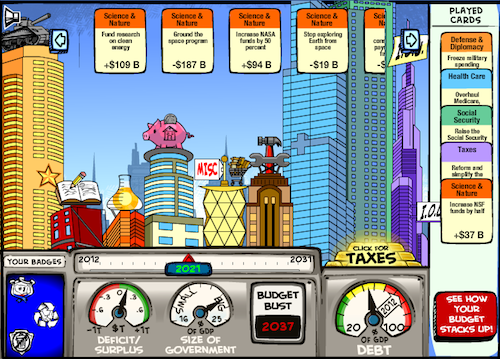Holy blazes, Batman, the budget’s gonna bust! We’re zooming toward the debt ceiling, but nobody seems to know what to do..
We need a hero. A Budget Hero!
Luckily, American Public Media put together this awesome widget that you can use to play around with the U.S. government budget, a little bit like our elected officials in Congress do. Cut spending, increase taxes, watch your deficit move around, and learn about what all these cuts and increases mean.
Think you can do better than Congress is now? You just might be… a BUDGET HERO!




